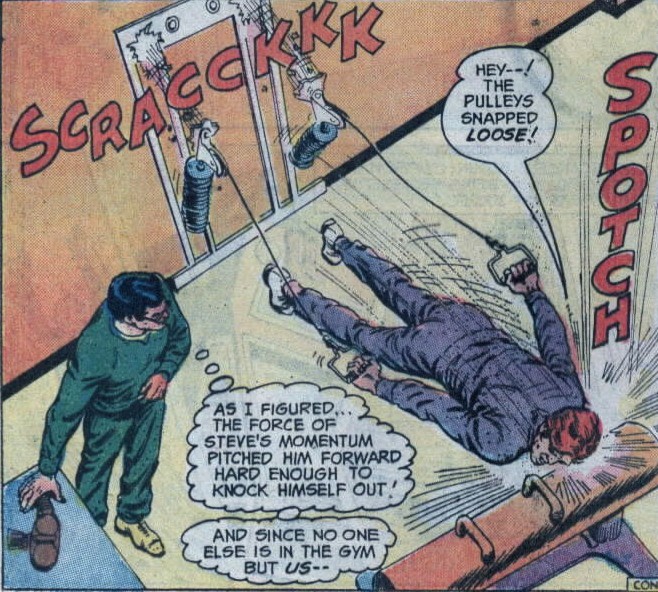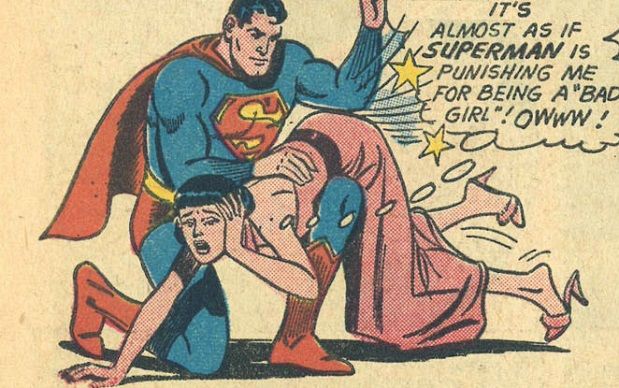But, then, I found that film overrated at the time.
Fascinating.
But, then, I found that film overrated at the time.
Superman lacked any sort of grip for me at the time. I was 8 or so when I first saw the film and it just was not fun. Now it is enjoyable but it isn't one I feel an urge to race back to watch.Fascinating.
Ok serious question: exactly when we saw Superman (for example) as an "ideal"? In the 40s he was little more than a superpowered vigilante. in the 50s and 60s he was a real dick (I mean, there are sites dedicated on his superdickery) who spent his time gaslighting Lois instead, you know, actually helping people. Then the 70s and the Bronze Age arrived, everyone was a lot more cynical, between comics fan he was already considered a joke and I assure you the the actual characters on the printed pages was an unbearable and hypocritical jerk (and sometime borderline psychotic). Actually, I would never let a kid approach those comics (except as a negative example). Then the 80s, Dark Knight Returns and Watchmen arrived and everything went grimdark.We no longer see superheroes as parables or ideals.
I can absolutely assure you that in the 70s Superman wasn't one of the "good people". He spent his time gaslighting Lois, date-raping amnesiac poor girls and giving concussions to his collegues.they were reading Superman and Batman and Spider-Man and Captain America being good people
In fairness to crookeddy, he was responding to a post I subsequently deleted, so "ideal" was my choice of words, not his. (I deleted the post because I was quoting myself and felt a little embarrassed about it.) But yeah, I do think Superman represents an ideal of both heroism and humanity. Sure, you can cherry-pick examples from 80+ years of history across multiple media to pooh-pooh that if you choose (and who doesn't enjoy a chuckle at some Silver Age Superdickery), but that's still the place he holds in the public consciousness and the pop-cultural pantheon.Ok serious question: exactly when we saw Superman (for example) as an "ideal"?
Golden Age Superman was just the best.I can absolutely assure you that in the 70s Superman wasn't one of the "good people". He spent his time gaslighting Lois, date-raping amnesiac poor girls and giving concussions to his collegues.


Yes. How dare people find something to relate to in a demigod figure?"Ohh, that's why he's good now, because he learned it through adversity"

The original Charles Moulton version of Wonder Woman was VERY into it - to the point the publisher gave him a near ultimatum to tone that aspect down.Now that I think about it, it really depends on your definition of "ideals", because, you know, I, err, heard that some people are in this kind of stuff...

Now that I think about it, it really depends on your definition of "ideals", because, you know, I, err, heard that some people are in this kind of stuff...


Ok serious question: exactly when we saw Superman (for example) as an "ideal"? In the 40s he was little more than a superpowered vigilante.
But please, someone explains how someone who went to incredible extents to hide his secret identity to Lois (Robots, Batman disguised as him, etc etc) and used his incredible powers and resources to made a woman think she was wrong when she was actually right (while he was professing his never-ending love for her) is one of the "good guys".
Yes. How dare people find something to relate to in a demigod figure?
"Good" is a social construct. Nobody does "good" for no reason.If you're saying you can't relate to someone trying to do good simply because it's the right thing to do, it says more about you than the choice in storytelling.
That is not what I am saying at all and a rather poor assumption.. I am saying that many people like characters who struggle and deal with adversity because they themselves go through adversity. It's not a matter of doing good-it's a matter of being able to relate to the character at a fundamental human level.If you're saying you can't relate to someone trying to do good simply because it's the right thing to do, it says more about you than the choice in storytelling.
That is not what I am saying at all and a rather poor assumption.. I am saying that many people like characters who struggle and deal with adversity because they themselves go through adversity. It's not a matter of doing good-it's a matter of being able to relate to the character at a fundamental human level.
"Hello, Bruce speaking. Oh, hi Clark! How can I help you? I have to put a hold on my fight against crime in Gotham to run to Metropolis and impersonate you for the umpteenth time, so Lois can't demonstrate you are Superman? Of course! I can't imagine a better use of the combined skills and resources of the World's Best Detective and the Man of Tomorrow than to make a woman question her mental health, when in reality she's right all along! This is exactly what the death of my parents taught me and what your catchphrase 'Truth, Justice, and the American Way' really means! I can't wait to join you in this little charade to lie again to the woman you say you love, instead of, you know, actually helping people!"Keeping his identity secret is one thing, but his full-on investment in mind manipulation via robots, friends in his costume, etc., made him appear to go waaayyy overboard just to con Lois (more than anyone else).



We use essential cookies to make this site work, and optional cookies to enhance your experience.
